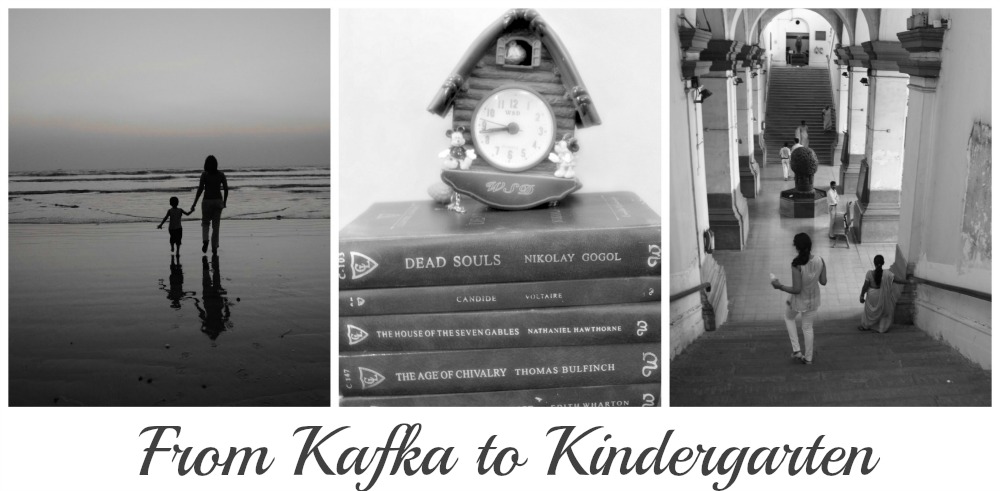Years ago, in ye olde pre-baby days, hubby and I did the rounds of a theatre festival whose theme was “Art with a Social Conscience”. Among several heavy duty plays was a dramatic reading of a poem by Naseeruddin Shah. The poem was a satire on environmental insensitivity in general and Big Dams in particular. It was called The Elephant and the Tragopan, written by Vikram Seth. I’d known Vikram Seth only for his novels, mainly the suitable boy, I’d never heard of his poems. Last year, on a trip to Kolkata, I found a ratty copy of Beastly Tales at a roadside stall and was thrilled to find this poem in it. Along with nine other, equally delightful poems.
I had initially thought that this might be a fun book to read to my son, but it might be a long while before he is ready for this one. It isn’t really aimed at kids and some of the poems are a bit too gory (The Eagle and the Beetle). The Monkey and the Crocodile is an exception and my boy adores it. The author states that these stories in verse are gathered from India, China, Greece, Ukraine and the lastly The Land of Gup, that magical country in Seth’s imagination where ambitious frogs, wise elephants and other such creatures live.
My favourite poems from this collection are the The Hare and the Tortoise, The Rat and the Ox and of course, the one that started it all The Elephant and the Tragopan. The Hare and the Tortoise is a retelling of the classic parable in the age of reality TV and media created celebrities. So now the hare is a vain society swan who is ‘famous for being famous’ and the tortoise is a cautious accountant. Despite losing, the hare grabs all the headlines and book/movie deals while the tortoise is deemed too boring to make good copy.
“Thus the Hare was pampered rotten
And the tortoise was forgotten”
The Rat and the Ox is a Chinese tale, wittily retold in verse. It tells of the Rat who outsmarts the Ox to earn the top slot on the Chinese Zodiac.
This book would be worth its very meagre price for its Illustrations alone. Each one precedes a poem and beautifully captures its quirky characters. Although these characters are elephants and cats and wolves and mice, their souls are unmistakably human. Seth uses these timeless fables to bare our darkest side to us. There isn’t always a happy ending here and almost never a ‘moral-of-the-story’, yet there is always an amazing insight into the most bewildering of all creatures. Humans.
“I speak to you as one whose clan
Has served and therefore studied man.
He is a creature mild and vicious,
Practical minded and capricious,
Loving and Brutal, Sane and Mad,
The Good as puzzling as the Bad”
---The Elephant in The Elephant and the Tragopan






